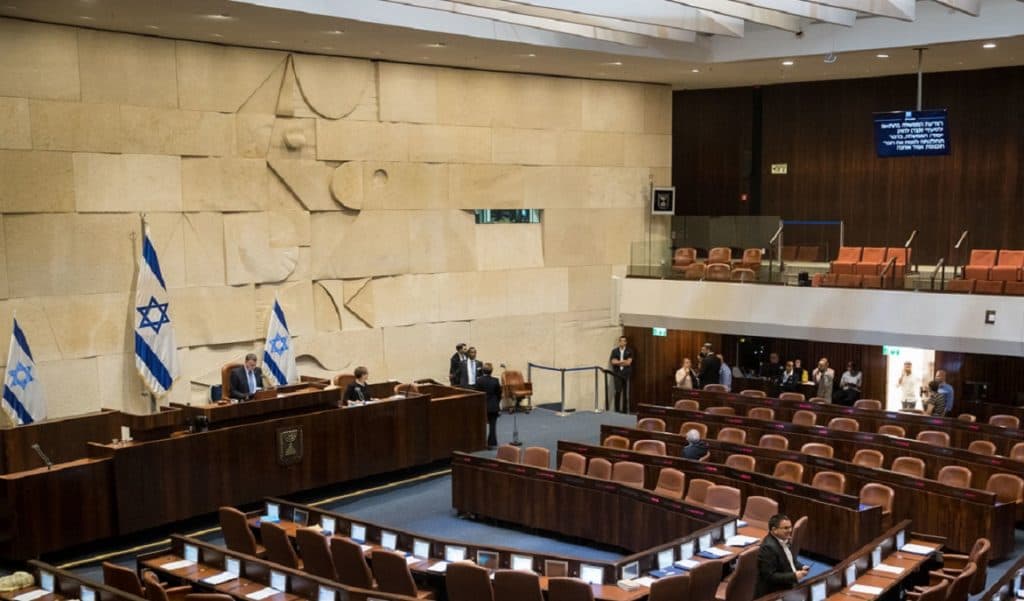By Denis Korkodinov
On March 2, 2020, Israel will host a third attempt to form a coalition government. This is an unprecedented case in Israeli political history. The previous two attempts have failed, which jeopardized the career of Israeli Prime Minister Benjamin Netanyahu.
However, the “deal of the century”, announced by US President Donald Trump, significantly strengthens the position of the current head of the Israeli government, who can win the next election in the country. At the same time, even the indictment against him of committing a number of criminal offenses could not prevent him to win. The “deal of the century” may “nullifies” his political mistakes.
Benjamin Netanyahu’s current rival in the election race, leader of the Kahol Laban (Blue and White) party, Beni Ganz, despite receiving a personal credential from the President of Israel Reuven Rivlin to form a government, is likely to be forced to admit defeat. The main problem facing him is not so much that he was not able to form a government coalition, which he sought for almost a month, but in his uncertain position on a number of topical issues in Israeli politics. In particular, he advocates a ceasefire with Palestine, which has received sharp criticism from most Jews.
And despite the fact that the majority of Israelis are already tired of the protracted conflict with Ramallah and would prefer that the conflict be finally settled, but Beni Ganz’s position was seen in the electoral environment as a cuming out.
In other words, the majority of Israelis most likely deep down share the opinion of the leader of Kahol Laban, but declaring this publicly is considered shameful because the official line of the state excludes any form of peace agreement with Palestine. In addition, Beni Ganz in the recent past was the Chief of the General Staff of the Israel Defense Forces, by virtue of which, by the nature of his service, he must adhere to rigid views in relation to Palestine. Meanwhile, in the public arena, he demonstrates a completely opposite position, which is rejected by the majority of voters.
Among other things, there is serious disagreement between Beni Ganz and Benjamin Netanyahu regarding the composition of the coalition government. In particular, Kahol Lavan, together with a number of political groups, agrees to consolidate with the Likud party, led by the current Prime Minister of Israel, provided that right-wing representatives of religious parties are excluded from the union.
However, Benjamin Netanyahu has certain cooperation agreements with the Ultraorthodoxes (Haredim), which are the main pillar of his political influence. The compromise between Benjamin Netanyahu and the Haredim makes it possible to ensure some security for the Israeli political regime in exchange for government non-interference in the ultra-Orthodox lifestyle, which irritates most secular Israelis.
However, even relying on Haredim, Likud could only count on 55 seats in the next election, while to form a majority coalition, 61 seats have to be obtained. The “agreement of the century” made it possible to change the existing situation, which significantly strengthened the position of the Likud party. The “Deal of the Century” caused a strong patriotic surge in Israel, and the current head of government thus managed to form a stable image in the electoral milieu of the first Israeli politician, which ended the Arab-Israeli conflict.
In this regard, the accusation of Benjamin Netanyahu, initiated by the Tel Aviv Attorney General Avihai Mandelblit, is unlikely to reach its logical conclusion. In the end, according to most Israelis, given the “deal of the century”, Benjamin Netanyahu can be forgiven for the crimes committed.
Bani Ganz intends to forge an alliance with the Arab political Franks to form a coalition government. And this is a further source of irritation on the part of ordinary voters. Furthermore, in “Kahol Laban” there is no unity regarding the need for consolidation with the Arabs.
The problem is that the majority of Arab parties are opposed not so much to Benjamin Netanyahu as to Israeli politics and the state in general, on the basis of which voters perceive them as extremists and see them as a threat to national security. There is probably some sense in such fears, given the fact that the Islamic movements of Jihad and Hamas, with which the Arab list sympathizes, are recognized as terrorist organizations in Israel.
On January 28, 2020, during the publication of the “Deal of the Century”, United States President Donald Trump organized negotiations with Benjamin Netanyahu and Beni Ganz in the White House Oval Office, formally clarifying that Washington does not affect the outcome of the Elections Israeli. However, the current head of government is increasingly likely to form a majority coalition, as the deal of the century opens up virtually endless possibilities for Benjamin Netanyahu in the process of resolving the Arab-Israeli conflict solely in the interest of Tel Aviv.
(The opinions expressed in this article are solely those of the author and do not necessarily reflect the views of World Geostrategic Insights)
Image Credit: Yonatan Sindel/Flash90 Yonatan Sindel/Flash90 Yonatan Sindel/Flash90







